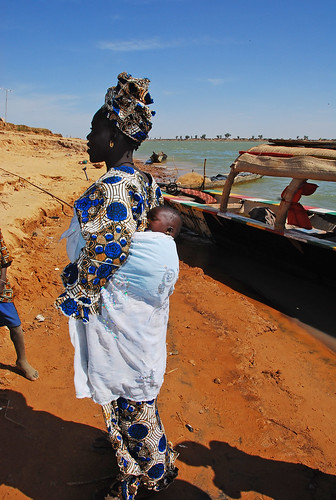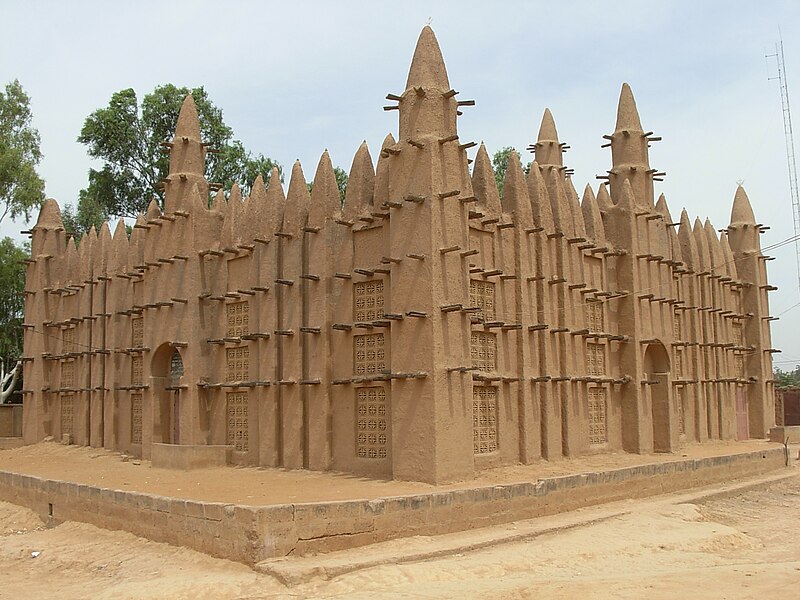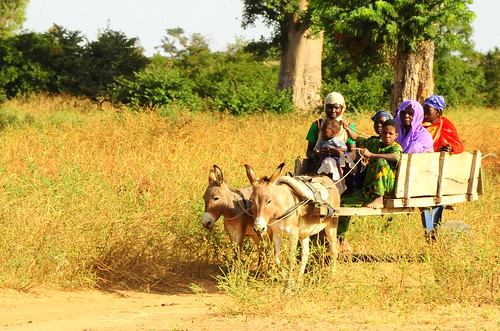Difference between revisions of "Adopting from Mali"
(→Hague Convention Information) |
|||
| Line 45: | Line 45: | ||
=Hague Convention Information= | =Hague Convention Information= | ||
| + | Mali is a party to the Hague Convention on Protection of Children and Co-operation in Respect of Intercountry [[Adoption]]([http://adoption.state.gov/hague_convention/overview.php Hague Adoption Convention]). Intercountry [[adoption]] processing in Hague countries is done in accordance with the requirements of the Convention; the U.S. implementing legislation, the Intercountry [[Adoption]] Act of 2000 (IAA); and the IAA’s implementing regulations, as well as the implementing legislation and regulations of Mali. | ||
| + | |||
| + | |||
| + | Types of [[adoption]] in Mali: Malian law distinguishes between two types of [[adoption]]. It is imperative that prospective [[Adoptive Parents|adoptive parents]] understand this distinction and obtain the correct type of [[adoption]] in order for the child to be eligible to immigrate to the United States. | ||
| + | |||
| + | |||
| + | '''[[Adoption]] Protection'' gives the prospective [[Adoptive Parent|adoptive parent]] [[custody]] over the child and obligates the [[Custodial Parent|custodial parent]] to provide for the child's food, shelter, schooling, and medical needs. In the interest of the child, [[Adoption]] Protection can be terminated at any time by the custodial party/parties, the Malian government, or the biological parent(s). Under certain circumstances, [[Adoption]] Protection can form the basis to obtain a visa to bring the child to the United States and finalize the [[adoption]] in a U.S. state court. Prospective [[Adoptive Parents|adoptive parents]] must obtain an attestation from the Direction de l’Enfant et de la Famille verifying that the [[Adoption]] Protection was obtained legally in order to secure the release of the child for emigration and [[adoption]]. Please consult the U.S. Embassy in Dakar before pursuing the [[Adoption]] Protection route for intercountry [[adoption]]. | ||
| + | |||
| + | |||
| + | '''[[Adoption]] [[Filiation]]''' allows for [[Parental Rights|parental rights]] to be established between the prospective [[Adoptive Parents|adoptive parents]] and the [[adoptee]]. Under Malian law, an [[adopted]] child with a [[filiation]] decree becomes a full heir with the same rights as a biological child. Children under the age of five whose parents are either deceased or unknown are eligible for [[Adoption]] [[Filiation]]. The prospective [[Adoptive Parent|adoptive parent]](s) must not have any legitimate children or descendants to qualify for [[Adoption]] [[Filiation]]. Prospective [[Adoptive Parents|adoptive parents]] are encouraged to use [[Adoption]] [[Filiation]], rather than [[Adoption]] Protection, to complete an intercountry [[adoption]] in Mali. | ||
| + | |||
| + | |||
| + | For guidelines on [[Adoption]] [[Filiation]], please read the information below. | ||
| + | |||
| + | |||
| + | The Government of Mali gives priority to Malian citizens for [[adoption]] of Malian children, but can consider applications from foreigners wishing to [[adopt]] Malian children as well. | ||
| + | |||
| + | |||
| + | '''NOTE:''' The Malian government has not authorized any U.S. [[adoption]] service providers to provide services in Mali. | ||
| + | |||
| + | |||
| + | '''NOTE:''' Special transition provisions apply to adoptions initiated before April 1, 2008. Read about [http://adoption.state.gov/hague_convention/transition.php Transition Cases]. | ||
| + | |||
| + | |||
| + | '''U.S. IMMIGRATION REQUIREMENTS FOR INTERCOUNTRY ADOPTIONS''' | ||
| + | |||
| + | To bring an [[adopted]] child to the United States from Mali, you must meet [http://adoption.state.gov/adoption_process/who_can_adopt/eligibility.php eligibility and suitability requirements]. The U.S. Department of Homeland Security, U.S. Citizenship and Immigration Services (USCIS) determines [http://adoption.state.gov/adoption_process/who.php who can adopt] under U.S. immigration law. Additionally, a child must meet the [http://cfr.vlex.com/vid/204-301-definitions-286271915 definition of Convention adoptee] under U.S. law in order to immigrate to the United States on an IH-3 immigrant visa. | ||
=Who Can Adopt= | =Who Can Adopt= | ||
Revision as of 23:22, 1 April 2014
Contents
Mali Adoption Alert
Notice: Malian Law Restricts Intercountry Adoptions (May 1, 2013)
In December 2011, the Malian National Assembly passed a new Code of Person and the Family. The Code includes a provision that only Malian citizens will be able to complete intercountry or domestic adoptions from Mali. In the case of couples planning to adopt, both members of the couple must be Malian citizens. Note: We understand that the law may allow Malian citizens who are also dual U.S. citizens to adopt.
The Department of State will provide updated information on adoption.state.gov as it becomes available. If you have any questions about this notice, please contact the Office of Children’s Issues at 1-888-407-4747 within the United States, or 202-501-4444 from outside the United States. Email inquiries may be directed to AdoptionUSCA@state.gov.
Notice: New Malian Law Potentially Restricts Intercountry Adoptions (November 26, 2012)
In December 2011, the Malian National Assembly passed a new Code of Person and the Family. The Code includes a provision that could be interpreted to mean that only Malian nationals would be allowed to complete intercountry adoptions of Malian children. While the Malian Presidency did not issue a decree that the law is in effect, the U.S. Embassy in Bamako notes that some local officials and judges are applying the law. U.S. prospective adoptive parents who are adopting from Mali may encounter delays because of the confusion about the Code.
The U.S. Embassy in Bamako is seeking clarification from the Malian central authority, Direction Nationale de l’Enfant et de la Famille, on when the law will take effect and whether the relevant provision would prevent U.S. citizens who are not also Malian nationals from adopting from Mali. We encourage adoption service providers and prospective adoptive parents considering initiating new adoptions from Mali to refrain from starting the process until further information is available.
The Department of State will provide updated information on adoption.state.gov as it becomes available. If you have any questions about this notice, please contact the Office of Children’s Issues at 1-888-407-4747 within the United States, or 202-501-4444 from outside the United States. Email inquiries may be directed to AdoptionUSCA@state.gov.
Hague Convention Information
Mali is a party to the Hague Convention on Protection of Children and Co-operation in Respect of Intercountry Adoption(Hague Adoption Convention). Intercountry adoption processing in Hague countries is done in accordance with the requirements of the Convention; the U.S. implementing legislation, the Intercountry Adoption Act of 2000 (IAA); and the IAA’s implementing regulations, as well as the implementing legislation and regulations of Mali.
Types of adoption in Mali: Malian law distinguishes between two types of adoption. It is imperative that prospective adoptive parents understand this distinction and obtain the correct type of adoption in order for the child to be eligible to immigrate to the United States.
'Adoption Protection gives the prospective adoptive parent custody over the child and obligates the custodial parent to provide for the child's food, shelter, schooling, and medical needs. In the interest of the child, Adoption Protection can be terminated at any time by the custodial party/parties, the Malian government, or the biological parent(s). Under certain circumstances, Adoption Protection can form the basis to obtain a visa to bring the child to the United States and finalize the adoption in a U.S. state court. Prospective adoptive parents must obtain an attestation from the Direction de l’Enfant et de la Famille verifying that the Adoption Protection was obtained legally in order to secure the release of the child for emigration and adoption. Please consult the U.S. Embassy in Dakar before pursuing the Adoption Protection route for intercountry adoption.
Adoption Filiation allows for parental rights to be established between the prospective adoptive parents and the adoptee. Under Malian law, an adopted child with a filiation decree becomes a full heir with the same rights as a biological child. Children under the age of five whose parents are either deceased or unknown are eligible for Adoption Filiation. The prospective adoptive parent(s) must not have any legitimate children or descendants to qualify for Adoption Filiation. Prospective adoptive parents are encouraged to use Adoption Filiation, rather than Adoption Protection, to complete an intercountry adoption in Mali.
For guidelines on Adoption Filiation, please read the information below.
The Government of Mali gives priority to Malian citizens for adoption of Malian children, but can consider applications from foreigners wishing to adopt Malian children as well.
NOTE: The Malian government has not authorized any U.S. adoption service providers to provide services in Mali.
NOTE: Special transition provisions apply to adoptions initiated before April 1, 2008. Read about Transition Cases.
U.S. IMMIGRATION REQUIREMENTS FOR INTERCOUNTRY ADOPTIONS
To bring an adopted child to the United States from Mali, you must meet eligibility and suitability requirements. The U.S. Department of Homeland Security, U.S. Citizenship and Immigration Services (USCIS) determines who can adopt under U.S. immigration law. Additionally, a child must meet the definition of Convention adoptee under U.S. law in order to immigrate to the United States on an IH-3 immigrant visa.
Who Can Adopt
Residency
Age of Adopting Parents
Marriage
Income
Other
Who Can Be Adopted
How to Adopt
Adoption Authority
The Process
Traveling Abroad
After Adoption
SOURCE
Intercountry Adoption, Bureau of Consular Affairs. U.S. Department of State Country Information











